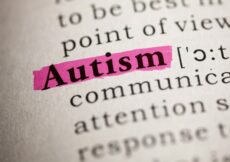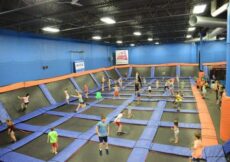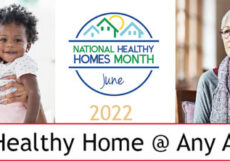February 14th, 2022
Nature’s First Vaccine
By Brian W. Donnelly, M.D., F.A.B.M.
AHN Pediatrics — Pediatric Alliance Northland
A recent article in the Washington Post asks the question, “Are more moms waiting to wean, thanks to covid?”
It’s a good question. The author’s answer is a facile yes. But I think this deserves a coach’s challenge. The larger effect of the shutdown on breastfeeding needs to be considered.
On one hand, it makes sense that mothers might want to nurse their babies and toddlers longer than they originally planned while a global pandemic caused by a highly contagious respiratory virus is raging. That’s what Jillian Pretzel decided to do:
But between my daughter’s birth in summer 2020 and getting vaccinated against the coronavirus in early 2021, I made it my goal to continue to breastfeed until my baby could get vaccinated, too. I know that not every parent is able to breastfeed, and many of those who do aren’t able to go so long. But I felt lucky to not run into any problems nursing and felt encouraged to keep going.
The benefits of delayed weaning can be significant:
“Breast milk is loaded with antibodies and other factors that protect infants,” says Grace M. Aldrovandi, chief of the division of infectious diseases at UCLA Mattel Children’s Hospital. “When a mother gets an infection, antibodies and immune cells traffic to the milk.”
Breast milk can help babies fight off respiratory infections, she explains, but because of the newness of covid-19, experts don’t know for sure if the same will apply. “We know that giving adults antibodies can prevent covid,” Aldrovandi says. “Breast milk containing SARS-CoV-2 antibodies probably works in a similar fashion. Some people consider breast milk antibodies to be nature’s first vaccine.”
Unfortunately, over the course of the pandemic, less priority has been given to childbearing and breastfeeding families. From the beginning, most hospitals made efforts to shorten their hospital stays. 73% of hospitals reported discharging babies within 48 hours of delivery.
Almost 40% of hospitals discouraged rooming in, and 5% even prohibited it. Many hospitals discouraged skin-to-skin contact between the mother and the baby. Some even forbade it. (The practices of rooming-in and skin-to-skin are designed to facilitate breastfeeding.)
20% of hospitals went so far as to discourage breastfeeding but their policy was to “allow it” if that was the mother’s decision.
Many hospitals decreased their staff dedicated to lactation support (i.e., lactation consultants). Some hospitals did shift their support to a computer-assisted virtual model, but there are many testimonials from mothers for whom the lack of real support led to their early weaning.
In the article Breastfeeding during COVID-19: A Narrative Review of the Psychological Impact on Mothers, we can read about their experiences. There was a dichotomy between mothers who had few difficulties and rather enjoyed their experience versus those who struggled without the professional support. Many of these mothers were frustrated with the virtual model as being inadequate for their needs. In-person support is very important when it comes to lactation. Aretha Franklin was right: “Ain’t nothing like the real thing, baby.”
The peripartum period represents a particular time of vulnerability, characterized by an increased maternal sensitivity added to intense, novel, and overwhelming caregiver tasks. For many mothers, the anxiety incurred by the coverage of the pandemic combined with the stresses of the societal shutdowns were enough to extinguish their attempts at breastfeeding. Some mothers also reported that the ordeal negatively impacted their overall trust in health services.
Another aspect of the societal shutdowns was the additional pressures put on some non-first-time mothers. Teleworking mothers were about twice as likely as teleworking dads to say they had a lot of child care duties while working. This played a role in not achieving breastfeeding goals for some of these mothers.
The CDC keeps track of the rates of breastfeeding initiation (breastfeeding just after birth) and duration (breastfeeding at 3, 6, and 12 months), but there is usually a several month delay in tallying the national scorecards. This Washington Post article notwithstanding, I think COVID-19 has had a large negative impact on breastfeeding in the United States. Here’s hoping we can learn from these experiences.
Dr. Brian Donnelly has a special interest in breastfeeding. He was the initial recipient of the Allegheny County Health Department’s Breastfeeding Advocacy Award. He is a Fellow of the Academy of Breastfeeding Medicine and can perform the frenulotomy procedure for tongue-tied infants who have trouble nursing. Dr. Donnelly sees patients at the AHN Pediatrics Northland office.




































